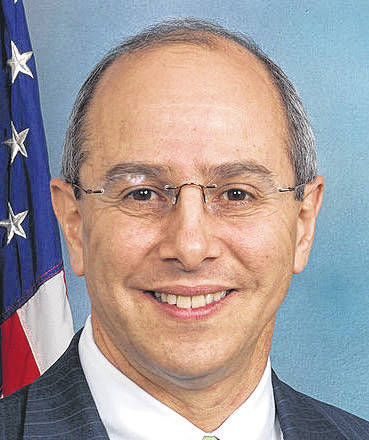
American, Canadian and Mexican trade negotiators are in the midst of hashing out a new North American Free Trade Agreement.
Several contentious issues remain unresolved. One of the biggest sticking points is the strength of intellectual property protections, such as patents and copyrights.
The Canadians and Mexicans oppose strong intellectual property rights. They claim that such protections inflate the price of drugs, thereby restricting patients’ access to medicines.
They’re wrong. Strong IP protections do not raise drug prices. They do, however, encourage research and development, which leads to more lifesaving medicines. By weakening IP rights, these groups would harm the very patients they want to help.
Developing new pharmaceuticals is difficult and expensive. On average, it takes more than a decade and costs more than $2.6 billion to bring just one drug to market.
Research companies would never invest billions of dollars to create new drugs without IP protections. Patents grant developers market exclusivity for a set amount of time. This exclusivity enables researchers to recoup their investments and fund future development projects.
IP protections are especially important for advanced pharmaceuticals like “biologics” — complex molecule drugs made from living organisms. They are extremely difficult and expensive to develop. That’s why U.S. trade negotiators ought to push for 12 years of regulatory data protection for biologics.
This protection would stop rival companies from using an inventor’s clinical trial data for 12 years and give innovators a chance to recoup their development costs.
Data protection won’t undermine access to medicine by driving up prices. Both Canada and Japan have increased the period of regulatory data protection — but government spending on drugs as a share of GDP remained virtually unchanged.
When governments don’t offer adequate, predictable, and reliable protections — or pay value-based prices for innovative pharmaceuticals — patients suffer.
Consider Canada. Our northern neighbor imposes strict price controls on drugs, reducing Canadians’ access to new medicines. The average pharmaceutical reaches American patients seven months sooner than Canadian patients.
South Korea blatantly undervalues medical technology and violates IP protections in the U.S.-Korea Free Trade Agreement. South Korea pledged to pay a fair price for innovative pharmaceuticals. But the South Koreans have reneged on their promise.
They’re tying reimbursements for innovative drugs to the average price of a “basket” of drugs — including old, generic ones. Valuing cutting-edge medicines as if they were 20-year-old generics is like comparing apples to oranges.
Price controls have the same effect on patients’ access to medicines around the world. A nearly twenty-year study of 76 countries by the National Bureau of Economic Research found that price controls delay the launch of medicines. Stronger intellectual property protections, on the other hand, sped up the launch of new medicines.
Our trade representatives ought to use the NAFTA re-negotiations to strengthen IP protections. Such protections are overwhelmingly popular. Three out of four Americans say NAFTA should better protect innovation, according to a recent poll of 2,000 voters by ACTION for Trade and Morning Consult.
These voters understand that IP protections are crucial not just for patients, but for the economy too. The biopharmaceutical industry supported 4.5 million U.S. jobs and added over $1.2 trillion to our economy in 2016.
To keep our economy churning and to increase access to advanced drugs across the world, American trade negotiators must preserve IP protections for drugs. Patients and researchers deserve nothing less.


